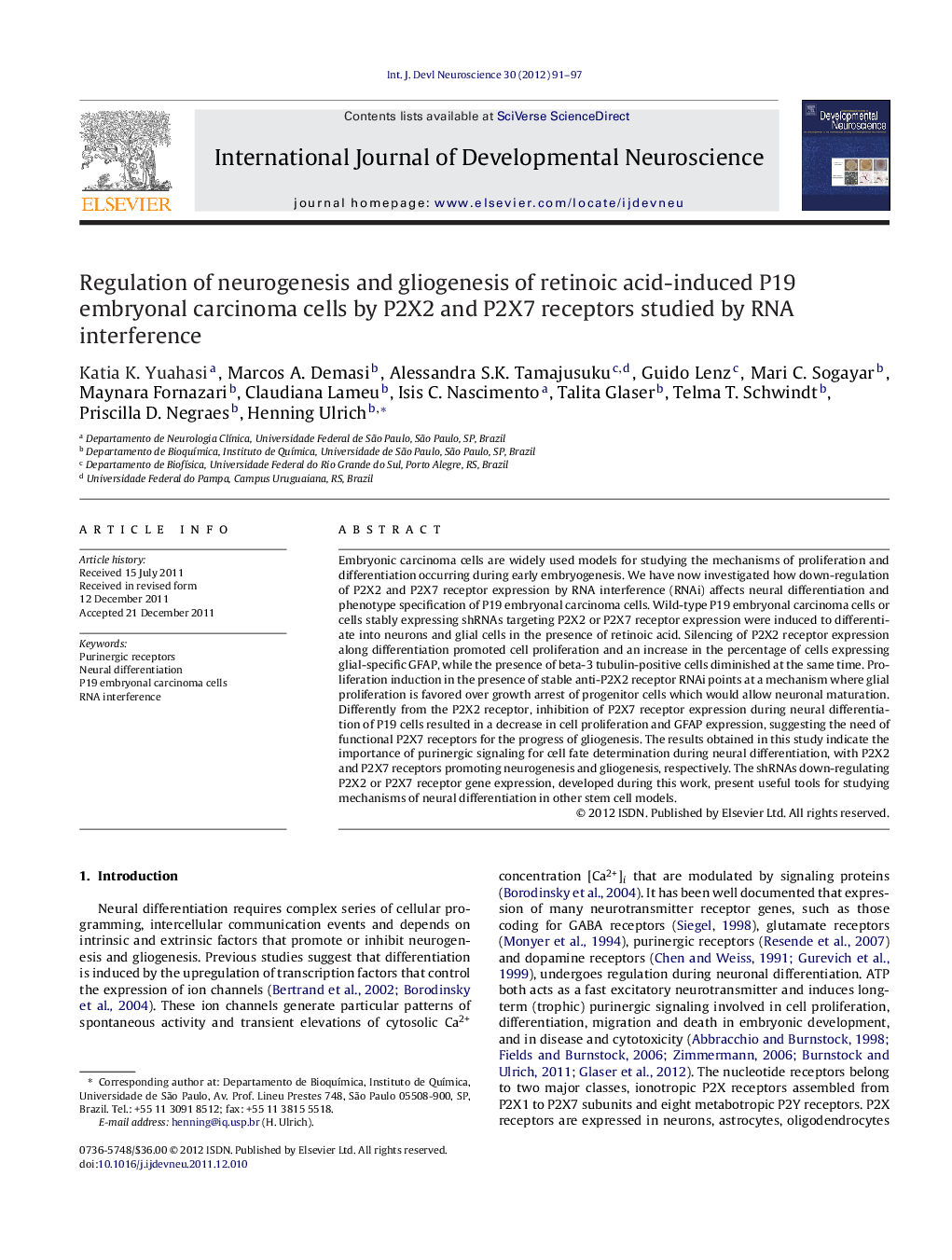| Article ID | Journal | Published Year | Pages | File Type |
|---|---|---|---|---|
| 2786280 | International Journal of Developmental Neuroscience | 2012 | 7 Pages |
Embryonic carcinoma cells are widely used models for studying the mechanisms of proliferation and differentiation occurring during early embryogenesis. We have now investigated how down-regulation of P2X2 and P2X7 receptor expression by RNA interference (RNAi) affects neural differentiation and phenotype specification of P19 embryonal carcinoma cells. Wild-type P19 embryonal carcinoma cells or cells stably expressing shRNAs targeting P2X2 or P2X7 receptor expression were induced to differentiate into neurons and glial cells in the presence of retinoic acid. Silencing of P2X2 receptor expression along differentiation promoted cell proliferation and an increase in the percentage of cells expressing glial-specific GFAP, while the presence of beta-3 tubulin-positive cells diminished at the same time. Proliferation induction in the presence of stable anti-P2X2 receptor RNAi points at a mechanism where glial proliferation is favored over growth arrest of progenitor cells which would allow neuronal maturation. Differently from the P2X2 receptor, inhibition of P2X7 receptor expression during neural differentiation of P19 cells resulted in a decrease in cell proliferation and GFAP expression, suggesting the need of functional P2X7 receptors for the progress of gliogenesis. The results obtained in this study indicate the importance of purinergic signaling for cell fate determination during neural differentiation, with P2X2 and P2X7 receptors promoting neurogenesis and gliogenesis, respectively. The shRNAs down-regulating P2X2 or P2X7 receptor gene expression, developed during this work, present useful tools for studying mechanisms of neural differentiation in other stem cell models.
► P19 embryonal carcinoma cells as in vitro model for early neural differentiation. ► Stable RNAi for down-regulation of P2X2 and P2X7 receptors in P19 cells. ► P2X2 receptors contribute to neurogenesis. ► P2X7 receptors induce gliogenesis. ► Induction of gliogenesis involves proliferation stimulation in P19 cells.
